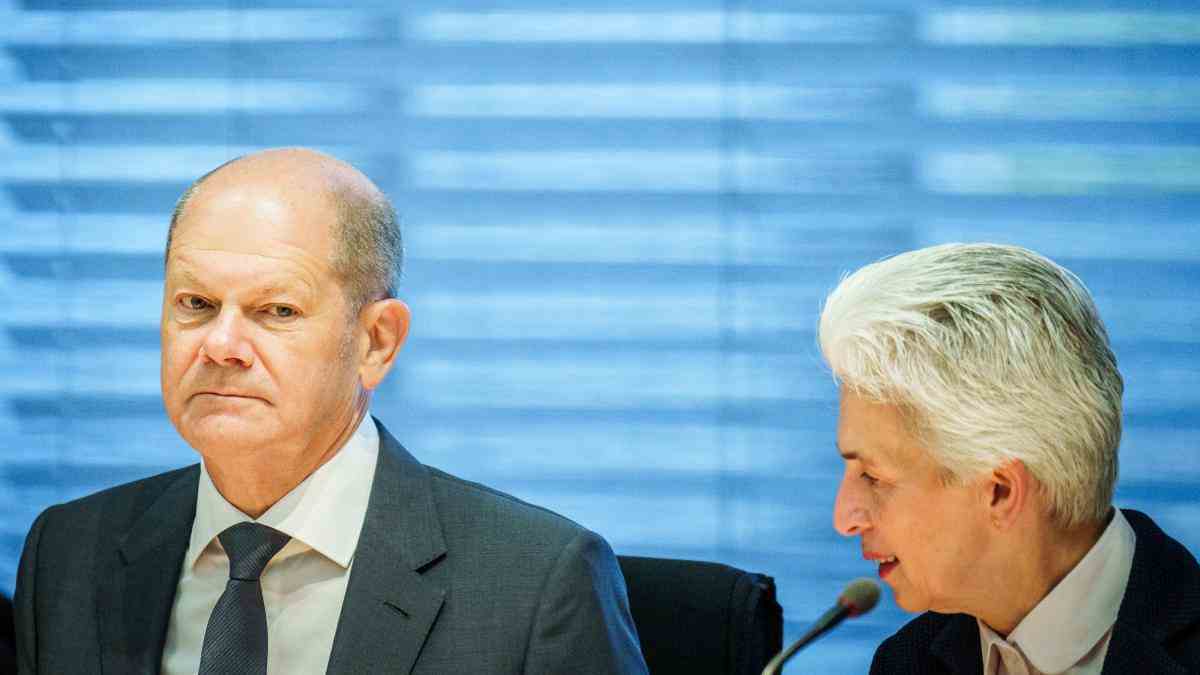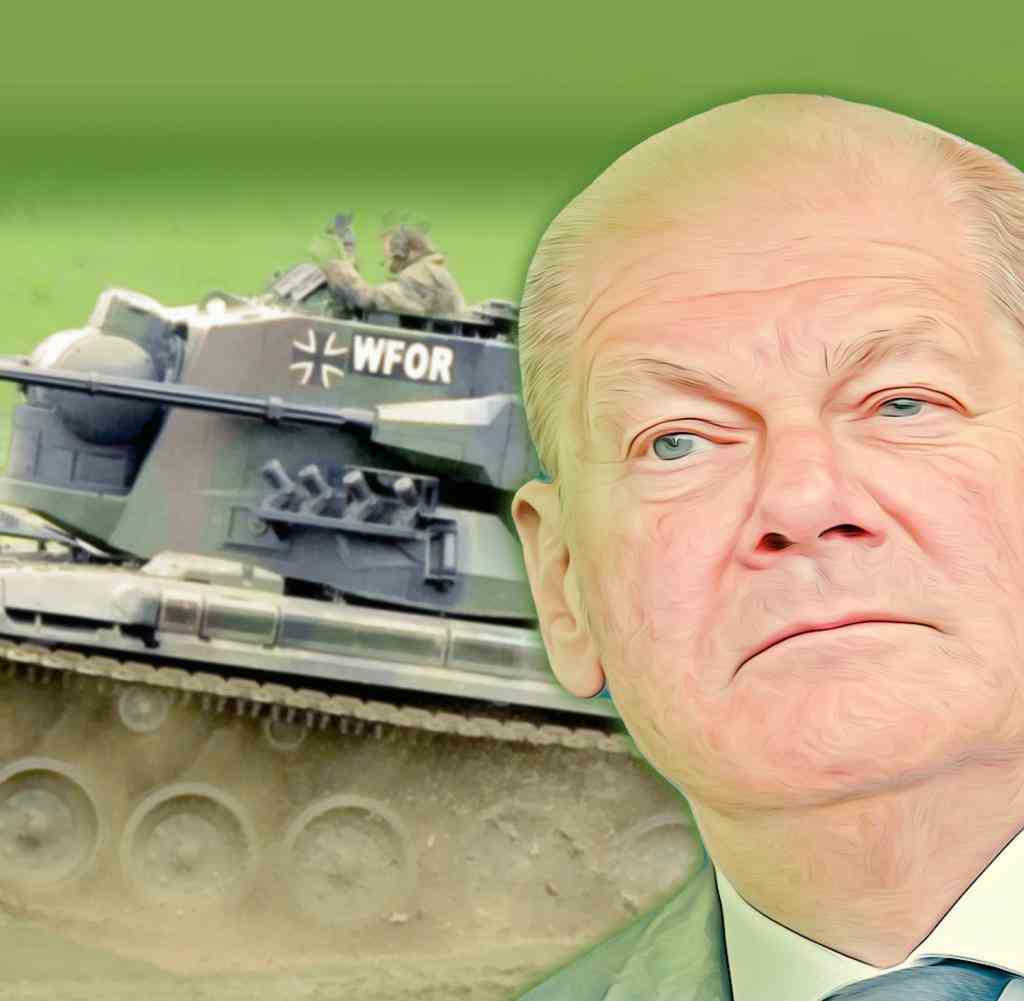FDP politician Faber criticizes the appearance of Chancellor Scholz
“Scholz announces and then doesn’t deliver. He couldn’t solve that”
Several FDP MPs are said to have left the Defense Committee meeting early. Apparently they were not satisfied with Chancellor Scholz’s answers. Florian Hahn, defense policy spokesman for the Union faction, also complained that there were unanswered questions.
At a meeting of the Defense Committee, Chancellor Scholz announced that he would try to talk to Russian President Putin. An FDP politician was disappointed after the chancellor’s appearance.
Dhe FDP defense politician Marcus Faber expected more from Chancellor Olaf Scholz’s appearance in the Bundestag’s Defense Committee on Friday. “Today the Chancellor had the chance to explain the government’s position in the Defense Committee. Unfortunately, at the end of the session, there were still many unanswered questions. I hope that he will answer them on his next visit,” said Faber WELT.
Faber contradicts reports that the FDP working group left the special session of the defense committee in protest. “After the end of the session, my colleagues and I left the committee meeting today. That’s why nobody feels ‘cheated’ and nobody has given a protest note, ”said Faber on the short message service Twitter.
However, the fact that some FDP politicians left the meeting early caused irritation. SPD politician Wolfgang Hellmich, spokesman for the SPD working group on security and defense policy, did not want to talk about “scandal” in an interview with the WELT news channel, but said: “To be honest, we didn’t understand why two minutes ago At the end of the session – the chancellor answers the questions put to him by the deputies – the FDP representatives leave the hall. I can’t understand it.” He thought that was inappropriate.
FDP politician Faber explained afterwards that some members of the parliamentary group had to leave the meeting because of follow-up appointments. “I am very sorry that a different impression was created, which I hereby resolutely reject.”
According to participants, Chancellor Scholz announced in the Defense Committee that he would try to talk to Russian President Vladimir Putin. “I heard, I heard clearly, that the chancellor had also announced a new initiative for talks with Putin,” said SPD defense politician Wolfgang Hellmich after the hour-long meeting with Scholz. The chancellor did this according to the motto: “Before May 9th it didn’t make any sense, but we have to make a new attempt because we have to talk to each other.” Without channels of communication, it would not be possible to find a solution to the conflict.
After the war began, Scholz called Putin several times, but then the contact broke off. in one “Stern” interview the chancellor said last week that he last spoke to the Russian president four weeks ago. According to reports from the Federal Press Office, the telephone call took place on March 30th. “If there is anything to discuss, I will get in touch again,” Scholz said in the interview. “Our priority is clear: the acts of war must end immediately.”
The chairwoman of the defense committee, Marie-Agnes Strack-Zimmermann (FDP), thanked Scholz on Twitter for the constructive exchange in the special session. She announces that further meetings will follow.
FDP has demanded a coordinator for arms deliveries to Ukraine
Before Chancellor Scholz appeared on the Defense Committee, the FDP had called for the appointment of a coordinator for arms deliveries to Ukraine. “There has to be someone who does it,” said committee chair Strack-Zimmermann. There are currently “a lot of misunderstandings” within the federal government on the subject. “I think you can make one or the other thing a little smoother so that the weapons can be delivered very quickly.”
Two days after the start of the war, the German government decided to supply Ukraine with weapons to fight against the Russian attackers. In the meantime, it also authorizes the provision of heavy weapons. So far, it has given the go-ahead for 50 decommissioned Gepard anti-aircraft tanks and seven 2000 self-propelled howitzers – heavy artillery pieces from the Bundeswehr stocks. However, the federal government has received further applications from industry that have not been decided on for weeks. Rheinmetall has offered to supply 88 used but refurbished Leopard 1 main battle tanks and 100 Marder infantry fighting vehicles.
Source: dpa infographic, infographic WORLD
Responsibilities for arms exports are divided between several ministries in the federal government. The Ministry for Economics and Climate Protection of Robert Habeck (Greens) is responsible for the export of industrial armaments. Christine Lambrecht’s (SPD) Ministry of Defense is responsible for deliveries from Bundeswehr stocks. The Foreign Office of Annalena Baerbock (Greens) is also involved because it gives assessments of the situation in the target countries.
The Federal Security Council, which consists of several ministers and is headed by Chancellor Scholz, makes the final decision on sensitive arms exports. It meets secretly, but decisions on arms deliveries can also be made by the members of the council in a so-called circulation procedure. Scholz arrived at the committee just after 8 a.m. on Friday. It is the first time that he is answering questions from the defense politicians of the parliamentary groups.
“Kick-off Politics” is WELT’s daily news podcast. The most important topic analyzed by WELT editors and the dates of the day. Subscribe to the podcast at Spotify, Apple Podcasts, Amazon Music or directly via RSS feed.


